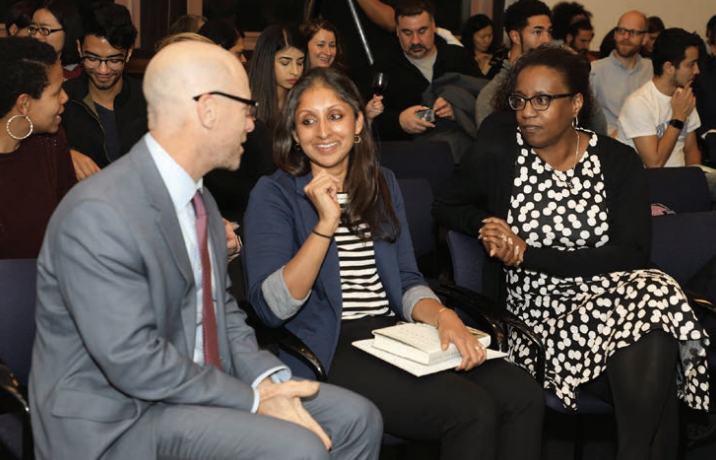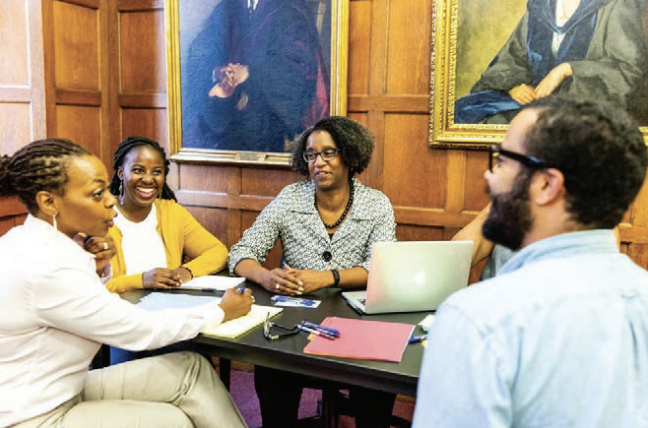In an interview conducted by Art and Art Education Professor Ami Kantawala, Teachers College Provost, Dean, and Vice President for Academic Affairs, Stephanie J. Rowley encourages us to consider antiracist education as a lifeline of our work, to rethink teacher education practices, and to make uncomfortable conversations comfortable.
AK: Growing up, did you have to face any challenges as a woman of color?
SR: I grew up in a liberal town that prided itself on its colorblind ideology. I remember feeling uncomfortable because I, as a child from an upper middle class family, got privileges that other Black students did not get. I was often told that I wasn’t like other Black students, and people thought that was a compliment. As I got older I realized the racist roots of those experiences and that really took me to my work on race, gender, and social class that I have pursued.

AK: Was there any experience—growing up, in school, or in your life—which pushed you to do antiracist work?
SR: My graduate school mentor, Robert Sellers, showed me early on that we can all lead and build structures that are antiracist. As a very young professor, he created a conference for Black graduate students to make sure that they were getting high-quality mentoring and as a pipeline to the professoriate. I worked on developing that conference as a graduate student, and it has been in place for nearly 30 years. A huge number of Black psychologists came through the conference and use the group as their network. It’s really incredible!

AK: As a leader of a teacher training college, what is your vision for educators and graduate students to lead antiracist work?
SR: Antiracist work should be a requirement for every teacher education student to leave Teachers College (or any other institution) with a skill set to be able to lead antiracist work. This allows them to stand at the forefront of issues of equity and justice in the classroom. It is equally important for teachers to be able to build a community that centers on antiracist values, which remains a challenge. What teacher education programs need to do is give students the space to practice inclusive leadership and the right vocabulary to lead this work through their actions. This must come through a strong series of coursework in teacher training programs that leaves students with that expectation that they would take this work on the other side. We assume that teacher educators feel as comfortable as they need to with concepts like antiracism, social justice, or inclusive classroom practices. Teacher educators are like all other human beings in that they come with a particular skill set that they have learned through their own life experiences, and they are not all prepared to lead this work. When I talk to faculty, oftentimes in those sorts of quiet private moments, they reveal that they also do not know how. I have talked to folks at TC who have said, “You know, I don’t know how to talk to students about issues of race or I don’t know what words to use. I do not know what is going to be inflammatory when my intention is to mean well.”
Read the full interview here: https://doi.org/10.1080/00043125.2021.1938450